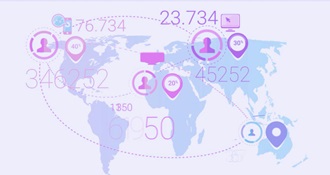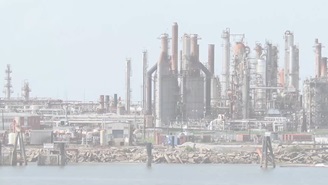Responding to COVID-19 through Social Bonds
In the space of four months since the first cases of COVID-19 were diagnosed in Wuhan, China, the virus has spread to 178 countries globally. As a consequence, nearly 3 billion people around the world are living with varying degrees of lockdown imposed by governments aiming to slow the spread of the contagion.
Coronavirus: Flattening the Misinformation Curve
In February 2020, the WHO Director-General Tedros Ghebreyesus said misinformation about COVID-19 is just as dangerous as the virus itself. “We are not just fighting an epidemic; we are fighting an ‘infodemic.’ Fake news spreads faster and more easily than the virus and is just as dangerous.”[i]
EU Sustainable Finance Action Plan: Final Taxonomy Report Published and Other Developments
The highly anticipated final report by the TEG (Technical Expert Group) on the EU Taxonomy was published in early March, followed by a stakeholder information session. You can read our blog post on last fall’s developments here.
Coal Investments: Up in Smoke?
Growing public concern over climate change is pushing investors to increasingly assess how their portfolios are pivoting to a low carbon economy. Because of its large carbon footprint, the coal industry is a prime target of environmental activism and divestment campaigns, and it is becoming the investable hot potato few want to hold.
German Corporate Governance Standards Overhauled
The legal and regulatory foundations of Germany’s corporate governance system are being overhauled in the form of far-reaching changes to the German Stock Corporations Act (AktG) and the German Corporate Governance Code (Kodex). As a result, institutional investors should expect enhanced transparency from German issuers, as well as stronger rights enabling them to effectively exercise their stewardship responsibilities. The reform reflects both the transposition of the EU Shareholder Rights Directive II (SRD II) into domestic law and a corresponding Kodex revamp, both aiming to incorporate governance features that are more typically associated with Anglophone jurisdictions.
Shipbreaking: Clean Shipping in Deep Water
Cleaner shipping has been a trending topic particularly since the International Maritime Organization (IMO) declared that 2020 will mark the “beginning of a decade of action and delivery” for the shipping industry.[i] A key approach to cleaner shipping is for companies to renew their fleet with more environmental-friendly vessels. However, this approach triggers an obsolescence of older vessels and increases shipbreaking activity. In Sustainalytics’ 10 for 2020 report, we mention the issue of shipping practices with large environmental impacts including shipbreaking practices which we will explore more in depth in this article.
Chilean Aquaculture: Expansion into Troubled Waters?
In November 2019, as part of the Sustainable Seafood Engagement, Sustainalytics visited Chile to learn more about the country’s rapidly growing aquaculture industry. Commercial salmon farming has developed quickly in Chile over the past two decades, and today the country is the second largest producer of seafood in the world. Although salmon is not a native species to Chile, the climate in the southern part of the country (zones 10 and 11) offers excellent conditions for farming activities. Farmed salmon now represents the country’s second largest export and the industry provides thousands of jobs for people living in some of Chile’s most remote communities.[i] Despite this economic success story, the industry also faces environmental and social challenges which may cause investor risk. These risks may become more pronounced in the future, as the sector now looks to expand deeper into biodiversity hotspots.
Infographic - Creating Impact Through Thematic Investing
In this year’s edition of our 10 for series, we put an environmental, social and governance (ESG) lens on 10 investment themes that may offer investors an opportunity to create a positive social and environmental impact through the equity market. The trends we identify are driven by corporate initiatives to scale new technologies, improve social conditions, conserve ecosystems and mitigate climate change.
Plastics - A Material Issue for Investors
The plastic waste issue is currently one of the fastest growing environmental topics on the political and business agenda. Plastic is a vital product to the global economy; however, the way it is being produced and managed is unsustainable, especially at the use and after‐use phases. The carbon footprint and emissions associated with plastic production along with the issue of the environmental and potential health impacts of plastic waste are a matter of growing concern for investors. In light of the environmental, social and financial challenges, the linear “take, make and dispose” approach cannot continue. The alternative is a circular economy approach, which focuses on maximizing resource value, making resource use more efficient and extending product value during use.
South Africa and ESG Risk
A Case Study On November 1, 2019 Moody’s cut its rating outlook for South Africa from “Baa3 stable” to “Baa3 negative,” putting the country’s bonds on the cusp of junk status after several harbingers of a potential downgrade.[i] Earlier this year, the World Bank and the International Monetary Fund cut their 2019 growth forecasts for South Africa to around 0.8%, while the Institute of International Finance warned that the country’s public debt could grow to 95% of Gross Domestic Product (GDP) by 2024.[ii] The other two big credit rating agencies (CRAs) – Fitch and S&P – downgraded South Africa’s credit rating to sub-investment grade back in 2017, citing a deterioration in the country’s public finances.[iii]
A Case for Impact Investing in Public Equities
As awareness around environmental and social issues has grown, so has the number of investors who deliberately seek to allocate capital to create positive social and environmental impact. Impact investing is as old as the sustainable investment industry, with the bulk of strategies to date having been executed through private equity and debt vehicles. However, as a more diversified pool of investors look to adopt impact investing strategies, fueled by the United Nations’ Sustainable Development Goals (SDGs) and the Paris Climate Agreement, a broader set of asset classes are being considered – here enters public equities.
Sustainable Finance and the EU Taxonomy: Developments from the Trilateral Negotiations
As global leaders meet in Madrid for the COP25 amid mounting concern over the international response to climate change, the EU Taxonomy experienced a setback with the UK and France blocking the plans. The new framework, intended to drive financial flows that will accelerate the shift to a low carbon future, will likely become a global standard affecting investors around the world. If enacted, it could cement the EU’s position as the world’s pace setter on climate legislation.
Death and Taxes are the Only Constants - But Not for Everyone
Major global companies such Google, Amazon, Facebook and Apple (known as “GAFA”) have come to dominate not just the tech industry but increasingly global commerce as well. The OECD estimates that companies like these avoid USD 100-240 billion in taxes annually, representing roughly 4-10% of global corporate income tax revenues. Attention paid to corporate taxation has also risen sharply in recent years, with increasingly heated debates on what constitutes “companies paying their fair share.”
PFAS Sparks a Wave of Litigation in the U.S. Chemical Industry
In 2019, a wave of litigation related to per- and polyfluoroalkyl substances (PFAS) emerged in the United States, as several states filed lawsuits against PFAS manufacturers, including DuPont, Chemours and 3M. This legal action accompanies increased regulatory scrutiny of this potentially risky class of chemicals. In this article, we will focus on the risks chemical companies face related to PFAS contamination of drinking water in the United States and the ESG risks posed to chemical companies and their investors.
Aligning Finance and Sustainability: The Role of the Principles for Responsible Banking
The Principles for Responsible Banking requires banks to take a hard look at their business strategies and their impacts on the environment and society. For this reason, Sustainalytics has endorsed the Principles for Responsible Banking and has committed to working closely with banks as they seek to further incorporate sustainability considerations throughout their operations.
Revising Mining Codes: Equality for Nations or Nationalization?
In recent years, an increasing number of nations, particularly in Africa, have been amending their mining codes. Governments likely view these amendments as a way of getting more for their people from their natural resources. But are these amendments slowly leading to the nationalization of the sector in some of these countries and how are the companies reacting?
Cybersecurity: A Pervasive Risk
In 2017, in the wake of the WannaCry ransomware attack, we argued that the event should be seen as a cybersecurity wake up call. Since then, cybersecurity risks have remained a source of uncertainty for most companies, driven by the increasing intensity, both in volume and impact, of cyberattacks. These risks are compounded by the continuous expansion of critical infrastructure (energy grids, utilities, hospitals) to digital platforms and the breadth of sensitive information that is housed in online servers. As a result, the pool of lucrative targets for malicious actors continues to grow. This is reflected in the notable rise in the number cyber insurance claims. According to a study by AIG, 2018 had the same number of cyber insurance claims as the preceding two years combined.[i]


















